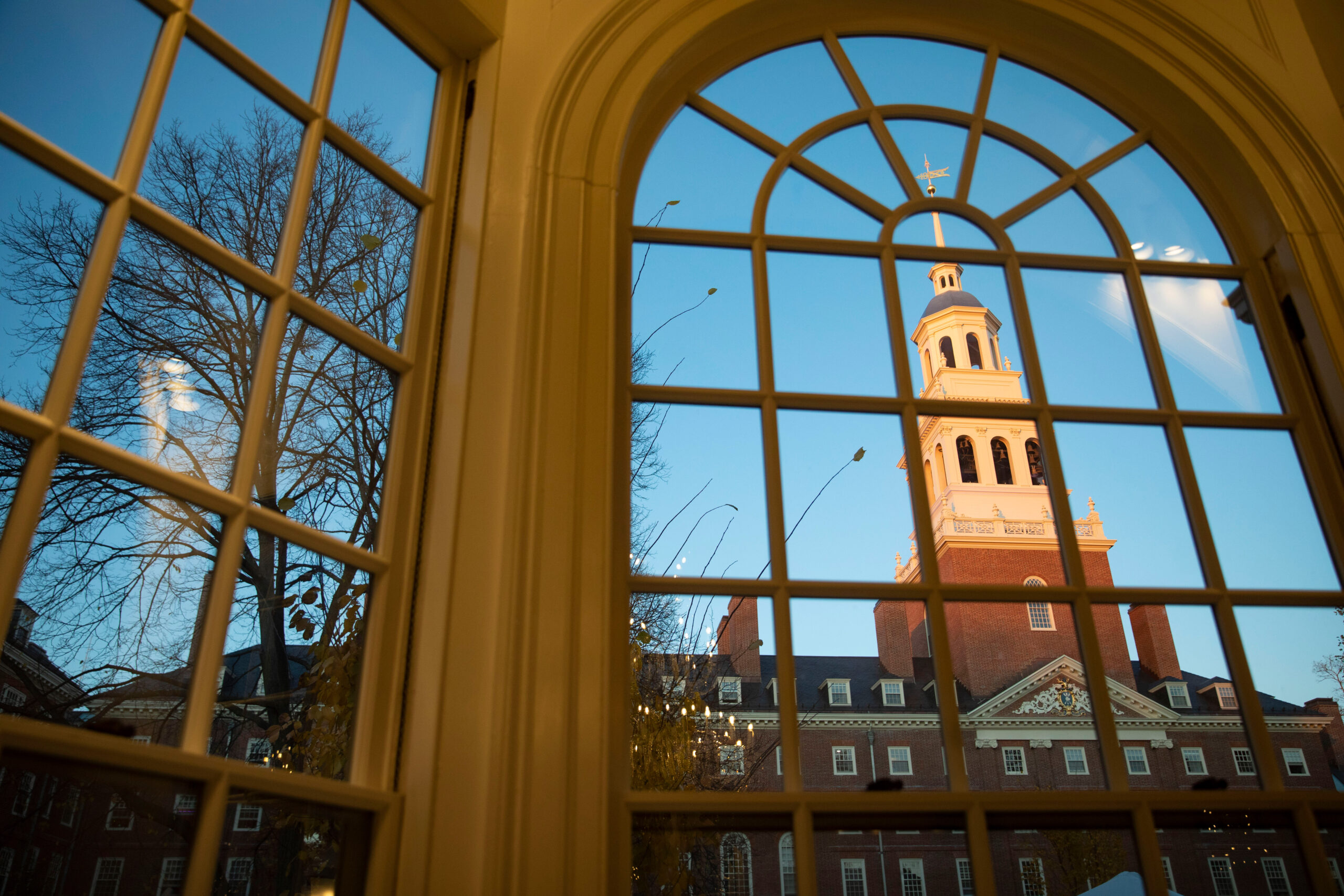
Harvard College is currently planning an in-person Visitas weekend, April 24-25.
Kris Snibbe/Harvard Staff Photographer
College accepts 740 under early action program
Will not require SAT or ACT scores for Class of 2026
Harvard College today accepted 740 students to the Class of 2026 from a pool of 9,406 who applied under the early action program. Last year, 743 students were selected from the 10,087 who applied.
“Each year Harvard sees an outstanding, talented pool of applicants in the early admissions cycle,” said William R. Fitzsimmons, dean of admissions and financial aid. “This year’s admitted class brings to Harvard robust talents and life experiences that will shape our community for years to come.”
All students deferred in the early admissions process will be considered again in the regular action cycle. Regular-decision applicants are slated to receive admissions decisions in late March.
Due to the ongoing COVID-19 pandemic and its continued impact on access to testing for high school age students, Harvard College will allow students to apply for admission without requiring SAT or ACT scores for the upcoming admitted classes of ’27, ’28, ’29, and ’30.
The current admissions cycle — for the Class of 2026 — is the second for which students have been able to apply to Harvard without requiring standardized testing, as many students continue to have limited access to testing sites due to COVID-19. Consistent with Harvard’s whole-person admissions process, standardized tests are one factor among many considered. Accomplishments in and out of the classroom during the high school years — including extracurricular activities, community involvement, employment, and family responsibilities — are considered as part of the admissions process.
“Students who do not submit standardized test scores will not be disadvantaged in their application process,” said Fitzsimmons. “Their applications will be considered on the basis of what they have presented, and they are encouraged to send whatever materials they believe would convey their accomplishments in secondary school and their promise for the future.”
Harvard’s generous financial aid program was cited as a factor by students and families in Zoom sessions as a reason for applying. Harvard’s financial aid program — bolstered by the Harvard Financial Aid Initiative (HFAI) — aims to make the College accessible to any student who is admitted. More than half of undergraduates receive need-based scholarships, paying an average of $12,700 per year in fiscal year 2021. Twenty percent of families pay nothing, and Harvard does not require loans. International students receive the same financial aid consideration as domestic students.
So far, nearly 12 percent of the admitted students come from first-generation college backgrounds, compared with 16.7 percent last year. In addition, this year 10.8 percent are estimated to be eligible for federal Pell Grants for those demonstrating exceptional need.
African Americans constitute 13.9 percent of those admitted (16.6 percent last year), Asian Americans 25.9 percent (23.4 percent last year), Latinx 10.5 percent (10.4 percent last year), and Native Americans and Native Hawaiians 3.7 percent (1.3 percent last year).
International citizens comprise 12.6 percent of the admitted students to date this year, compared with 12.2 percent last year.
Students were notified of early action decisions via email at 7 p.m. on Dec. 16. Those admitted are not obligated to attend and have until May 1 to make their final decision. At this time, Harvard is planning to maintain its current deferral policy for this admissions cycle.
The deadline to apply for regular decision is 11:59 p.m. Eastern time on Jan. 1.
At this time, Harvard College plans to welcome students to campus for an in-person Visitas weekend. From April 24-25, Harvard will host a number of events designed to welcome the admitted Class of 2026 and introduce them to the College community, as well as to the resources and opportunities available at Harvard. Harvard will continue to host virtual events for students via Crimson Connect, its online platform for the Class of 2026, which will be used throughout the spring to engage with current students, faculty, and staff. Students will receive information about Visitas and Crimson Connect via the Admitted Student Website. In-person Visitas programming will be contingent upon University, local, and state public health guidance. Any potential changes to planned programming will be announced to students directly.



